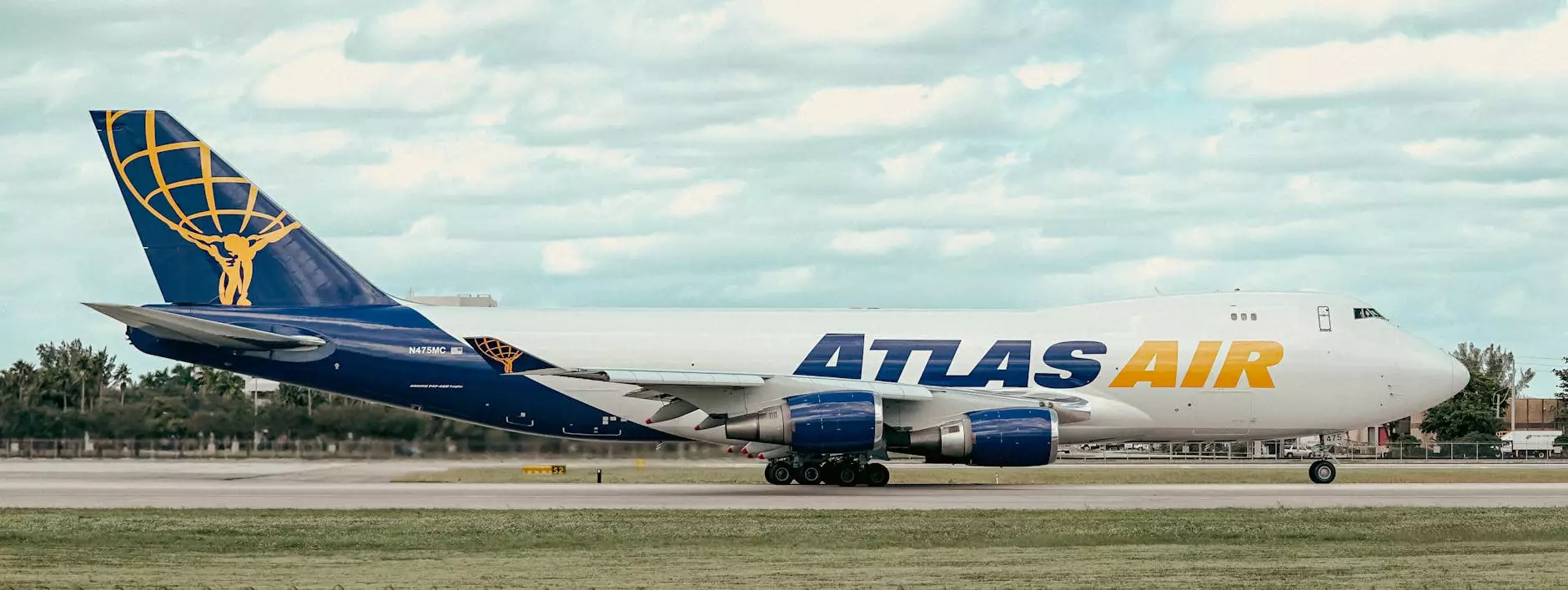The Ultimate Guide to Air Cargo Quotations

In the dynamic world of logistics, air cargo quotations play a crucial role in determining the cost-effectiveness and efficiency of shipping goods across borders. This guide delves into the intricacies of air cargo, providing valuable insights for businesses that seek reliable and affordable shipping solutions.
Understanding Air Cargo: A Comprehensive Overview
Air cargo refers to the transportation of goods and commodities via aircraft. This mode of transport is essential for businesses looking to ship items quickly, especially over long distances. The benefits of utilizing air cargo include:
- Speed: Air freight is the fastest method of shipping, making it ideal for urgent deliveries.
- Global Reach: With a vast network of international airports, air cargo can connect businesses to global markets.
- Reduced Risk of Damage: Because air cargo services often involve special handling procedures, the risk of damage during transit is significantly reduced.
What are Air Cargo Quotations?
An air cargo quotation is a formal estimate provided by air freight service providers that details the costs associated with shipping goods via air. This quotation typically includes various charges and considerations such as:
- Freight Charges: The base cost for transporting your goods by air, calculated based on weight and dimensions.
- Fuel Surcharges: Variables in oil prices can lead to additional, fluctuating costs that shape air cargo pricing.
- Security Fees: Necessary charges to ensure secure transport of goods, following aviation regulations.
- Handling Fees: Costs associated with loading and unloading cargo at the airport and during transit.
Factors Influencing Air Cargo Quotations
Air cargo quotations can vary based on multiple factors, ensuring that businesses can find tailored solutions for their logistics needs. Some key considerations include:
1. Weight and Dimensions
The weight and size of the cargo significantly impact shipping costs. Air freight rates are typically calculated by either the actual weight or the dimensional weight (volumetric weight), whichever is greater. Therefore, understanding how to measure these variables is vital to get the most accurate quotation.
2. Destination
Shipping to different locations can incur varying rates. Major hubs might offer competitive pricing due to frequent flights, whereas remote destinations may result in higher costs. Businesses should consider routing and access to shipping centers that can offer better pricing and service.
3. Type of Goods
Certain products, such as hazardous materials or perishable goods, often require specialized handling and care. This can lead to increased costs reflected in the air cargo quotations.
4. Seasonal Demand
Identify peak seasons for air cargo, such as holidays or special sales periods, during which demand surges. Such fluctuations often lead to higher prices due to increased operational costs across transportation sectors.
How to Obtain Accurate Air Cargo Quotations
To ensure you receive accurate and competitive air cargo quotations, follow these steps:
1. Choose Reliable Freight Forwarders
Select a reputable freight forwarder with a strong history in the air cargo business. Their expertise can lead to better negotiations and rates tailored to your needs.
2. Provide Detailed Information
When requesting a quotation, supply comprehensive data about the cargo. Include:
- Detailed descriptions of the items
- Weight and dimensions
- Destination and origin of shipment
- Desired shipping dates
3. Compare Multiple Quotes
Don’t settle for the first quotation you receive. Comparing offers from various service providers can help you identify the most cost-effective solution while still meeting your operational requirements.
Key Benefits of Utilizing Air Cargo Services
Adopting air cargo services for logistics provides multiple advantages that can enhance business operations:
- Timely Deliveries: Meeting customer demands with timely shipments increases satisfaction and supports better business relationships.
- Inventory Management: Quick restocking aided by air freight can help maintain optimal inventory levels and reduce storage costs.
- Market Agility: Air cargo enables businesses to react swiftly to market changes, like surges in demand or unexpected supply chain interruptions.
Challenges of Air Cargo Quotations
While air freight has numerous benefits, navigating the landscape can be challenging. Some prominent issues include:
1. Volatile Pricing
The cost structure of air freight can be unpredictable, driven by changing fuel surcharges, operational demands, and global market dynamics. Businesses must stay informed and consider locking in rates when favorable.
2. Documentation Requirements
Air cargo often comes with extensive documentation requirements, including but not limited to customs declarations and packing lists, necessitating a thorough understanding of international shipping laws to ensure compliance and avoid delays.
Integrating Air Cargo Into Your Supply Chain
To maximize the potential of air cargo within your business, consider the following integration strategies:
1. Collaborate with Logistics Experts
Work closely with logistics professionals who have experience in air freight to develop tailored solutions that fit your unique business model.
2. Leverage Technology for Tracking
Utilize technological solutions for real-time tracking of shipments, allowing you to monitor logistics performance and make informed decisions swiftly.
3. Regular Review of Shipping Strategies
Conduct regular assessments of your shipping strategies to determine the effectiveness of air cargo solutions. This ensures that you remain competitive and responsive to market conditions.
The Future of Air Cargo Quotations
As e-commerce continues to expand and global trade becomes increasingly interconnected, the demand for air cargo quotations will grow. Innovation in logistics technology, such as increased automation and improved data analytics, is set to redefine how air cargo services operate.
In addition, sustainability considerations are influencing air cargo industries, leading to a shift toward greener practices that may influence pricing models. Businesses that embrace environmentally friendly logistics can not only enhance their brand reputation but may also find long-term economic benefits.
Conclusion
In conclusion, navigating the world of air cargo quotations is essential for businesses aiming to optimize their shipping logistics. By understanding the factors that influence costs, obtaining accurate quotations, and integrating air cargo effectively into your supply chain, you can leverage the speed and reliability of air transport for your business goals.
For further information on air freight solutions tailored for your business needs, visit cargobooking.aero today.









